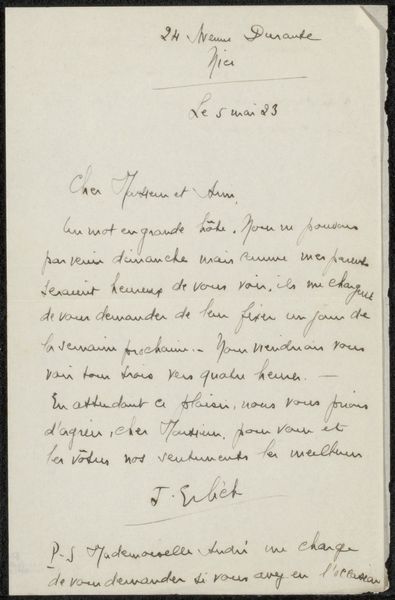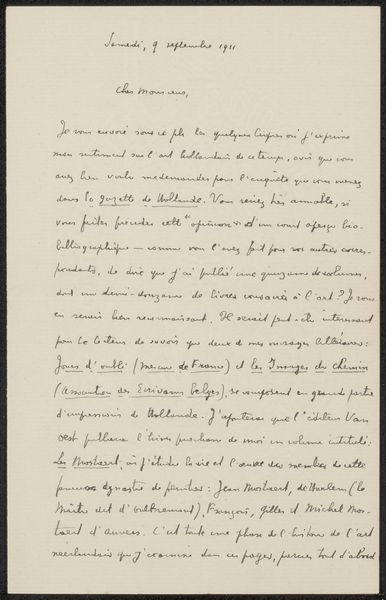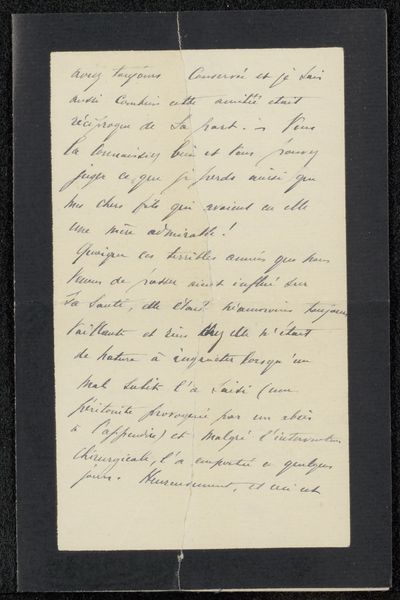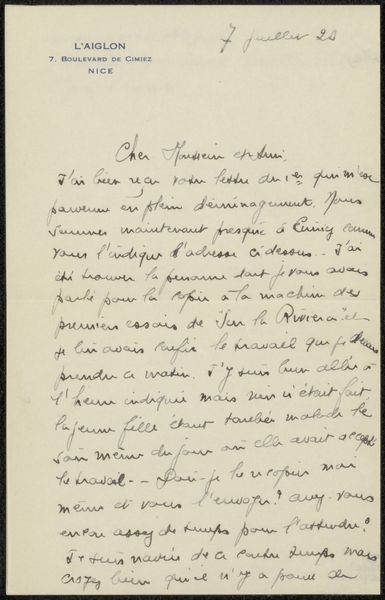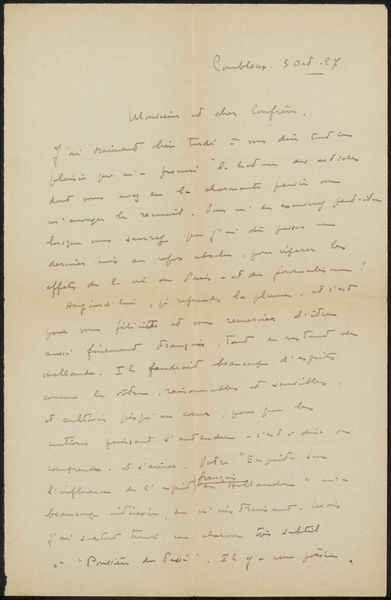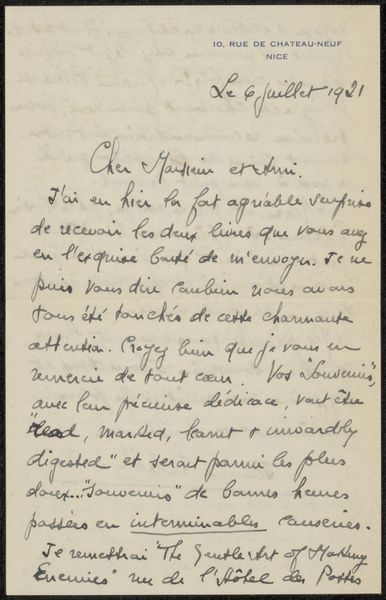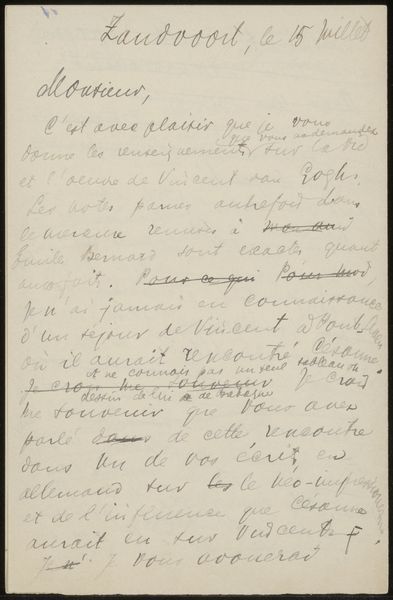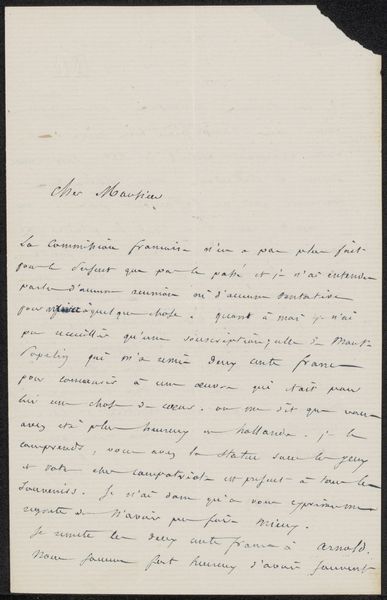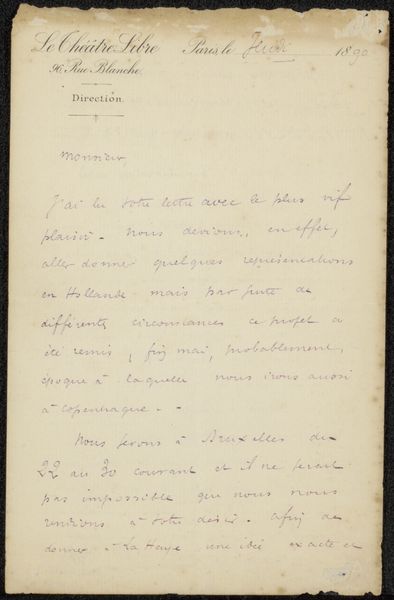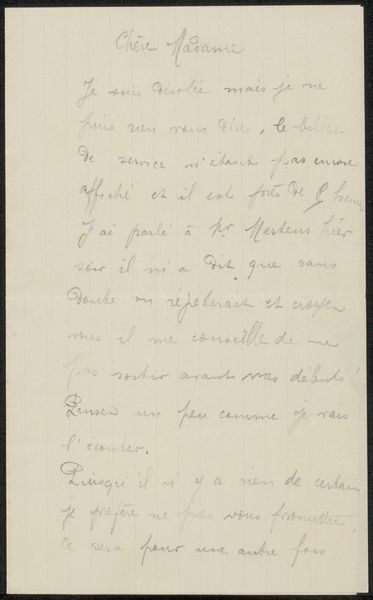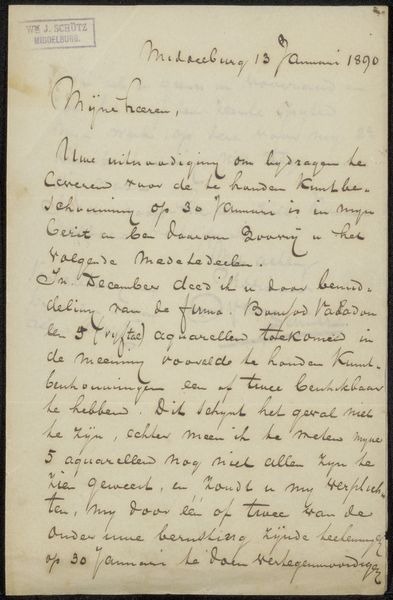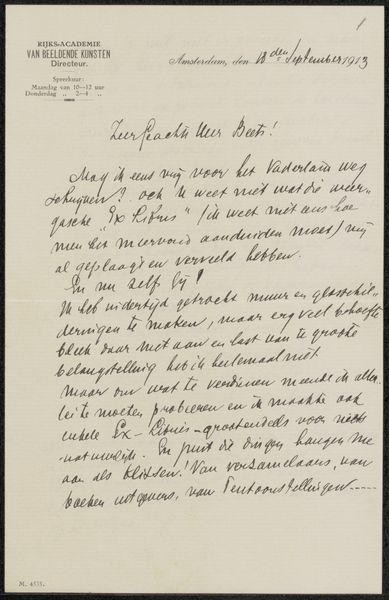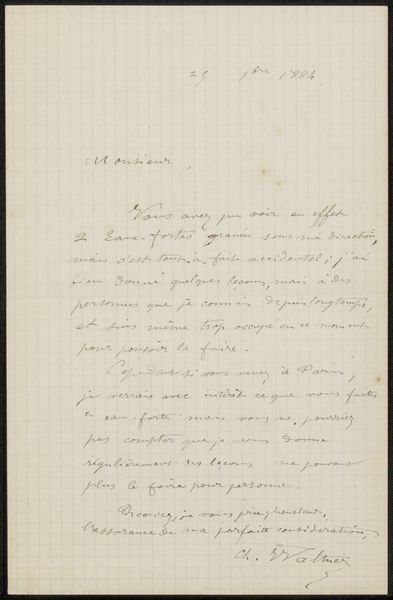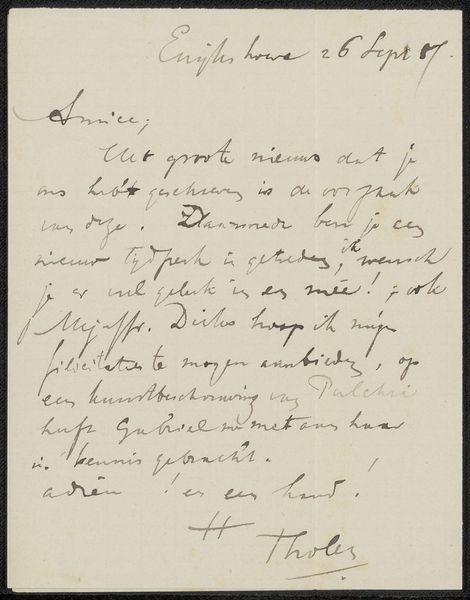
drawing, paper, ink, pen
#
drawing
#
hand-lettering
#
ink paper printed
#
hand drawn type
#
paper
#
personal sketchbook
#
ink
#
hand-drawn typeface
#
ink drawing experimentation
#
intimism
#
ink colored
#
pen work
#
symbolism
#
sketchbook drawing
#
pen
#
sketchbook art
Copyright: Rijks Museum: Open Domain
Curator: This work is "Brief aan Philip Zilcken," believed to have been penned around 1898 by Stéphane Mallarmé. It’s rendered in ink on paper, showcasing Mallarmé’s distinctive hand. Editor: There’s something deeply personal about seeing handwriting—it offers such immediacy. The pressure, the flow... I feel as though I am witnessing the author’s private thoughts almost unmediated. Curator: The gestural quality is key. Note how the variable line weight of the ink contributes to the rhythm of the writing. Each word is like a brushstroke. The arrangement of text—consider it composition, essentially—reflects Mallarmé’s innovative approach to typography. Editor: For me, the repeated loops in the letters resonate with a sense of introspection and the winding nature of thought itself. What did such a personal message convey to Zilcken? Curator: Perhaps something quite simple, and rather everyday—this intimacy is key. Beyond the content, the work functions as a pure visual object; a nexus of contrasting lines and fields of open space. This contrast creates depth. Editor: True. But even simple information can become loaded with meaning when expressed through symbolic forms. Perhaps the specific weight of the pen strokes or the slant of certain words held coded meaning specific to their relationship? Curator: Certainly, that could very well be the case; that would be of great relevance to Mallarmé. Nevertheless, the interplay between the controlled marks and their accidental variations introduces a subtle tension that propels the form forward. Editor: It certainly creates a space for reflection. You are able to see all this intimacy so explicitly through such an indirect way of analyzing its forms and weight. Curator: Analyzing the ink’s distribution unveils the deliberate gestures within the composition, enhancing the overall reading. Editor: Looking at Mallarmé's hand this closely encourages us to meditate on how correspondence weaves complex patterns through our lives and history.
Comments
No comments
Be the first to comment and join the conversation on the ultimate creative platform.
